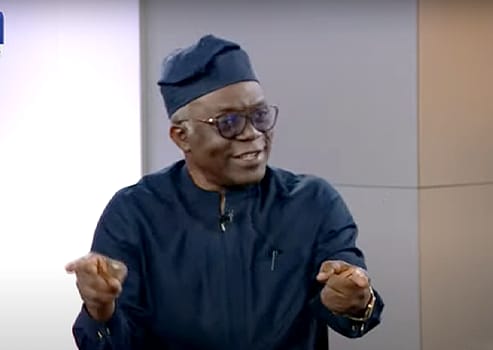Human rights lawyer, Femi Falana has urged the federal government to consider joining the BRICS economic bloc and selling crude oil and gas in Naira in Naira rather than in US dollars.
Falana who is also a Senior Advocate of Nigeria (SAN) criticised the federal government for adhering to economic policies and predictions from institutions like the International Monetary Fund (IMF) and the World Bank.
He said the global institutions have imposed “deleterious policies’ ‘on Nigeria such as increasing electricity tariff and removal of subsidies, weakening the Naira and worsening the cost of living in the country.
Falana stated this while speaking on Channels TV on Tuesday, February 14.
He noted that some of Nigeria’s allies, such as Saudi Arabia, UAE, Ethiopia and Egypt, have joined the BRICS, and wondered why Nigeria was not part of the bloc, which is considered to be a counterweight to the western powers.
“We cannot be more Catholic than the Pope. If friends of the West are joining BRICS, why are we not there? So that we can trade in naira,” he said.
He also suggested that the government should adopt a radical policy of selling the Nigerian crude oil and gas in naira, rather than in dollars, to promote the national currency and reduce the demand for foreign exchange.
“If I had my way, my own radical policy would be that: I would sell Nigerian gas and crude oil in naira. Let those who want to buy our products look for naira. That is how to promote your currency,” he said.
He called on the government to address the issues that have led to the “economic doldrums” in the country, such as the over-reliance on oil, the lack of diversification, the corruption and the mismanagement of public funds.
He also lamented that the government has abdicated its responsibility to the IMF and the World Bank, which he claimed were set up by imperialism to destroy the economies of developing nations.
He said the only economic body recognised by the constitution to advise the President is the National Economic Council, headed by the Vice President and composed of the state governors, the Governor of the Central Bank and the Minister of Finance.
He said he would take legal action against the government if it fails to comply with the court order to regulate the prices of commodities in the country.























